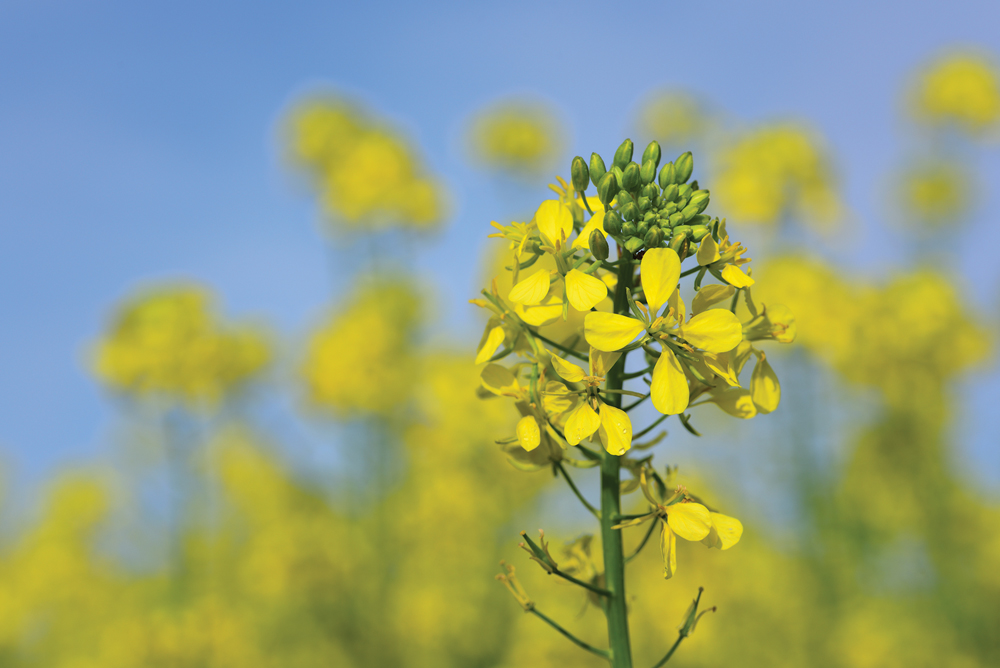“The members wanted it and we didn’t see any reason not to do it.”
– mcga president rob pettinger
Apreferential ballot will be used to elect four Manitoba Canola Growers Association (MCGA) directors this fall for four-year terms.
“The members wanted it and we didn’t see any reason not to do it,” MCGA president Rob Pettinger said last week from his farm at Elgin.
During past elections the four candidates with the highest number of votes were elected to the MCGA’s eight-person board. But in February at the MCGA’s annual meeting, a resolution in favour of switching to a preferential ballot, similar to the one used in Canadian Wheat Board elections, passed easily despite opposition from MCGA directors Bruce Dalgarno and Ed Rempel.
Read Also

CUSMA access key among other trade noise: Seeds Canada panel
Seeds Canada conference panelists say Canada needs to stay focused and wait as U.S. trade and tariff chaos develops, and a Canada-U.S.-Mexico Agreement review looms
Dalgarno, who farms at Newdale, said he preferred the current “first-past-the post” system, while Rempel, who farms at Starbuck, said the change would add to election costs without much impact on the outcome.
Rempel also said the resolution, along with one to limit the number of years a director could remain on the board, were out of order because they required the MCGA to change its bylaws. Nevertheless, both resolutions were debated and passed.
Pettinger said it turned out the board can implement a preferential ballot without a bylaw change, but the bylaws have to be amended to limit directors’ terms. The board will decide at its meeting in November whether to ask members to endorse a bylaw change limiting directors’ service.
“I think in some form it will happen,” Pettinger said. “All the other canola organizations similar to us have term limits. I personally think it would be a good thing. It would encourage new people to run and bring new ideas to the board.”
Changes to the MCGA’s bylaws require that members be notified 40 days in advance of a meeting where members will be allowed to vote on the proposal. Any change must be approved by two-thirds of the members in attendance.
The resolution, which passed 20-3, proposed directors serve no more than three consecutive four-year terms. However, they would be free to seek re-election after being off the board for two years. Pettinger said that was “more than generous.”
One of the advantages of a preferential ballot is that to get elected, candidates normally must get at least 50 per cent of the votes plus one. But Pettinger said in MCGA elections that wouldn’t be possible if losing the low vote-getter off the ballot resulted in one or more of the four positions not being filled.
A preferential ballot will cost an extra $4,000 to $6,000 in election costs, Pettinger said. It’s not insignificant, but it’s also not prohibitive given that’s what members want, he said.
Since it doesn’t require a bylaw change, the board felt it could try a preferential ballot, and tweak or even go back to the old system if necessary, Pettinger said.
Meyers Norris Penny will administer the election.
Manitoba farmers who have grown, delivered and sold canola commercially and not asked for refunds of their MCGA checkoffs during the past two years (Sept. 30, 2007 to Sept. 30, 2009) are eligible to vote.
Farmers unsure of their membership status can call the MCGA office (204-982-2120).
All candidate nomination forms must be delivered to MCGA’s office on or before 4:30 p. m. Nov. 2, 2009.
Nomination forms are available from MCGA’s office or its website, www.mcgacanola.org.
Mail-in ballots will be sent to members Nov. 16 and must be returned to the MCGA by Dec. 10. Returned ballots will be counted Dec. [email protected]



















